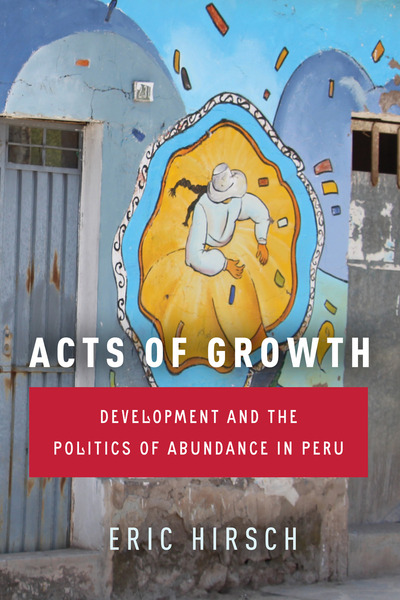In 'Acts of Growth: Development and the Politics of Abundance in Peru', Eric Hirsch considers what growth means—and importantly how it feels.

Eric Hirsch, Assistant Professor of Environmental Studies at Franklin & Marshall College (USA) discussed his book Acts of Growth: Development and the Politics of Abundance in Peru (Stanford University Press, 2022) in the Greenhouse environmental humanities book talk series on Monday, 14 November 2022, at 16:00 in Norway (10:00 Eastern).
Over the last decade, Peru has experienced a spectacular mining boom and astronomical economic growth. Yet, for villagers in Peru’s southern Andes, few have felt the material benefits. With this book, Eric Hirsch considers what growth means—and importantly how it feels. Hirsch proposes an analysis of boom-time capitalism that starts not from considerations of poverty, but from the premise that Peru is wealthy. He situates his work in a network of villages near new mining sites, agricultural export markets, and tourist attractions, where Peruvian prosperity appears tantalizingly close, yet just out of reach.
This book centers on small-scale development investments working to transform villagers into Indigenous entrepreneurs ready to capitalize on Peru’s new national brand and access the constantly deferred promise of national growth. That meant identifying as Indigenous, where few actively did so; identifying as an entrepreneur, in a place where single-minded devotion to a business went against the tendency to diversify income sources; and identifying every dimension of one’s daily life as a resource, despite the unwelcome intimacy this required. Theorizing growth as an affective project that requires constant physical and emotional labor, Acts of Growth follows a diverse group of Andean residents through the exhausting work of making an economy grow.